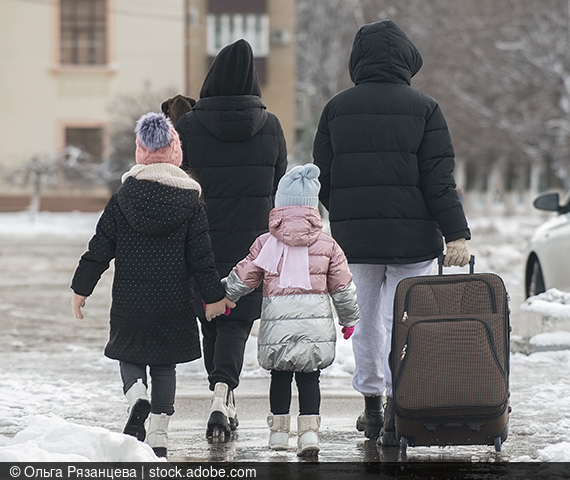Migration from Russia Very Likely
ResearchPoliticians Ought to Have Strategy for Influx of Russians into Germany
More than 4.6 million Ukrainians have fled the country since the start of the war. As a result of the invasion, more and more people are also fleeing from Russia. Reasons for this range from the restricted freedom of expression, fear of political persecution or being drafted into military service, to poor economic prospects following the unprecedented level of sanctions on Russia. What is different with current Russian migrants fleeing to neighbouring countries compared to Ukrainian migrants, is that there are indications that the economically active population is over-represented among the Russian emigrants. This may include specialists in the IT and other creative sectors of the economy, who have international language skills as well as customers.
Dr. Katrin Sommerfeld, migration expert at ZEW: “Past economic ties between Germany and Russia and the presence of Russian diaspora in Germany such as represented by ethnic Germans (“Spätaussiedler”) will likely contribute to the desire of some Russians to move to Germany in the medium to long run. We thus recommend policy makers to bring forward a strategy of how to deal with migrants from Russia. Political and fairness considerations suggest that people in fear of political persecution should be welcome. A smart policy would take into account the main strategic arguments, would try to build up immigration policies targeted at Russian immigrants and would keep up the corresponding capacities to also deal with Russian immigrants in the future.”
If Russians are free to move within Germany, one would expect the regional distribution to follow past ethnic networks. Russian citizens are currently concentrated in large cities such as Berlin, Hamburg and Munich with the highest population share in the city of Baden-Baden (with 1.7 per cent). Meanwhile ethnic Germans (“Spätaussiedler”) are larger in number and somewhat more equally dispersed throughout the country (although concentrated in North-Rhine Westphalia and Baden-Wuerttemberg), as a new ZEW report shows.
Germany has not yet seen such an immediate wave of Russian migration given flight and other travel restrictions, but examples from countries geographically and culturally closer to Russia are informative on what is to come in the more medium term. General estimates are non-existent, but anecdotes suggest that post-Soviet countries of the Caucasus and Central Asia, as well as countries like Turkey, are sought after by Russians. Armenia, for example, has already received an estimated number of up to 75,000 people from Russia in just the first three weeks of war, which is 2.5 per cent of its population. Daily flights from the capital Yerevan to various destinations in Russia are said to have increased four-fold compared to pre-war levels, while, given the demand shock, local prices of rental housing and office space are skyrocketing.

